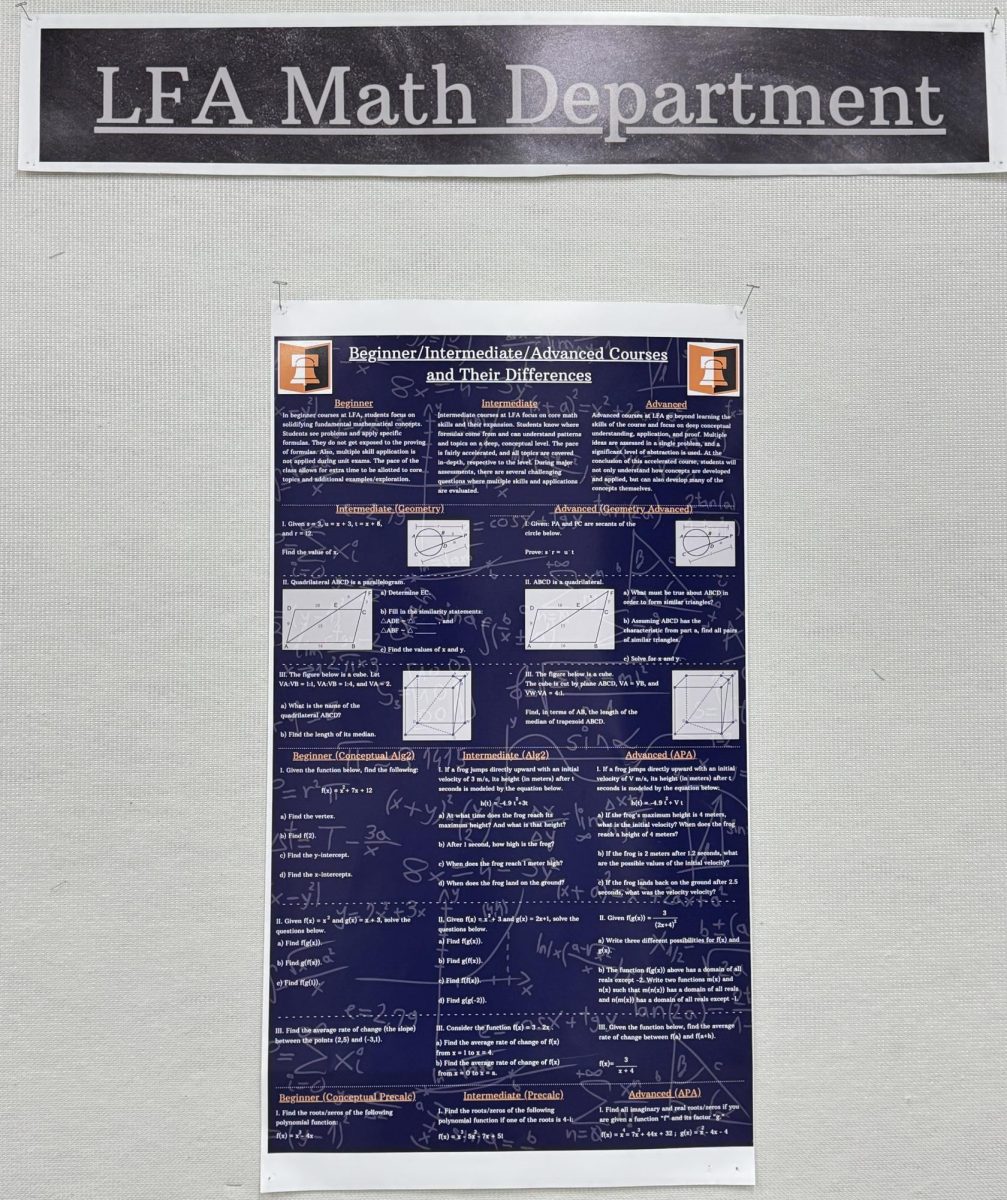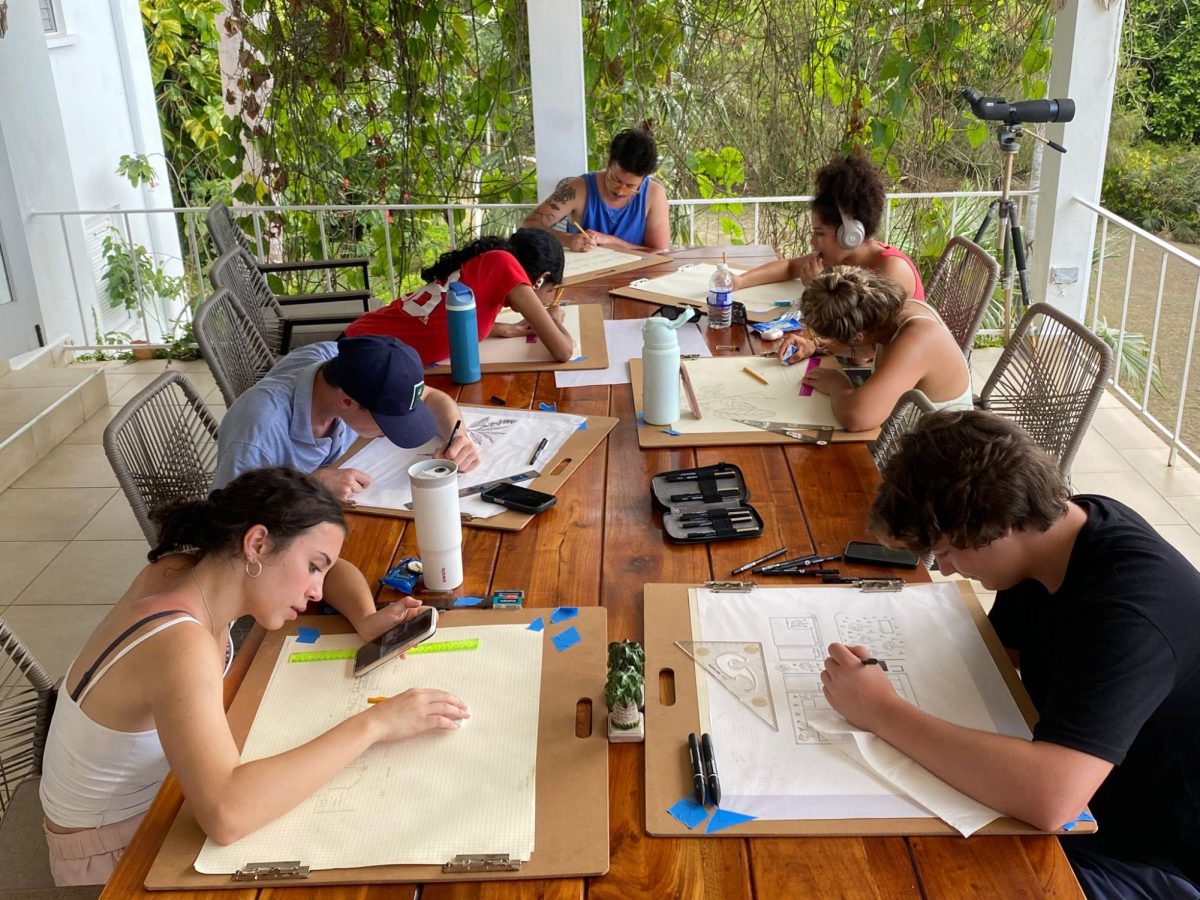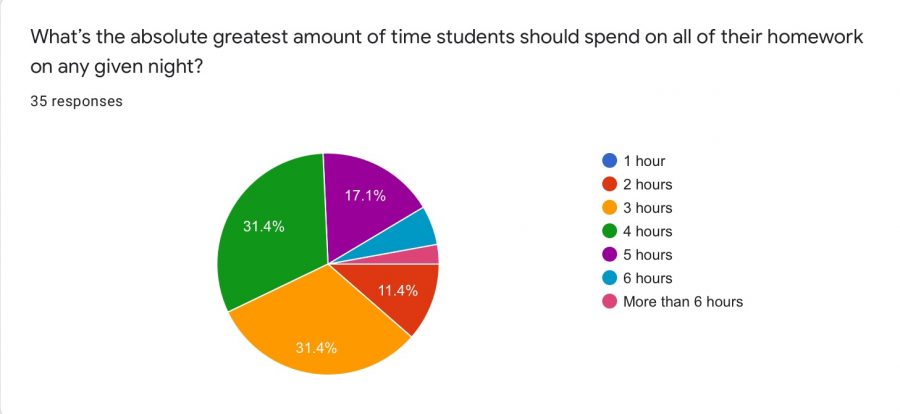Are LFA Students Getting Enough Sleep?
December 3, 2019
Sleep is an essential part of life. It is recommended that adults get eight hours of sleep per night, and that teenagers get up to nine-and-a-half hours of sleep per night. Unfortunately, this is not the reality for many individuals in today’s society, and LFA students are not exempt from this particular struggle of attaining the suggested amount of sleep each night.
It’s no secret that LFA is an academically rigorous school. The Academy prides itself on being one of the best schools for academics in the state. LFA offers first-rate classes taught by esteemed teachers, and sizable workloads often accompany these challenging courses. But sometimes the copious amount of homework that students have can compromise how much sleep they can get.
On October 8th, a survey inquiring about students’ sleep and study habits was sent to the students of Lake Forest Academy. In less than twenty-four hours, over 200 students responded to the survey. The fact that over half of the student body responded within such a short period of time shows that this is a relavent and important issue among the student body.
Another survey with parallel questions was sent to the faculty members of LFA. That survey received 35 responses, roughly half of the teaching faculty.
On the survey, 40% of teachers said they believe students spend 3 hours on homework per night. Overall, 80% of teachers believed students spent 2-4 hours on homework.
Of the students surveyed, 32.6% claimed to spend 3 hours on homework on an average night. Most students (74%) spend 2-4 hours on homework.
The disconnect between students’ realties and teachers’ perceptions of time spent on homework can be seen when the times are broken down to individual classes’ work.
According to the 2019 Faculty Handbook, “Students can expect up to 30 minutes per night of homework in most courses. AP and upper-level courses can have up to 45 minutes per night of homework…The 30- and 45-minute maximums should not be exceeded.” The Faculty Handbook additionally states that “Faculty should keep in mind that when a class does not meet for a day during the cycle or over a weekend, this does not mean students should receive extra homework. The rotating days off in the cycle and weekends provide students with built-in days off to keep courses and coursework at a manageable pace.”
51.4% of teachers claimed their homework only takes 30-45 minutes per night. In most subject areas, this figure was an accurate estimation of how long it takes students to complete homework, but the results of the survey showed that one particular department’s homework typically took students more than an hour to complete. 29.5% of students said that their history homework usually took longer than an hour to complete each night. In all other departments, less than 15% of students said that their homework took more than an hour.
According to the teachers surveyed, 62.8% believe that the absolute greatest amount of time students should spend on all of their collective homework is 3-4 hours. In reality, 53.3% of students have spent six or more hours on one night’s worth of work on at least one occasion.
This begs the question: how many students have sacrificed sleep in order to complete homework? An overwhelming 90.7% of students claim to have sacrificed the recommended amount of sleep in order to complete their homework.
When teachers were asked whether they believe students should ever have to sacrifice sleep in order to complete homework, the question proved divisive with 51.4% of teachers saying “no” and 48.6% of teachers saying “yes.”
Nonetheless, it is evident that students have sacrificed substantial amounts of sleep in order to complete school work. When asked the least amount of sleep they’ve ever gotten on a school night, 13.2% of students said they have gotten less than one hour of sleep. A little over 68% claimed to have gotten 4 hours of sleep or less on one particular night.
Of course those are examples of extreme cases, given that 61.2% of students surveyed claim to get an average of 6-7 hours of sleep on school nights. However, according to the 85.7% of teachers who responded to the survey, this is still an insufficient amount of sleep. Those teachers said that students should ideally get 8-9 hours of sleep.
The results of these surveys indicate that there is a current problem of sleep deficiency among LFA students, which many claim is often caused by large amounts for homework. A lack of sleep can be detrimental to both physical and mental health. Given that the official school policies on homework are meant to foster a healthy work and sleep balance, it might greatly benefit the community if this particular issue was revisited.





































